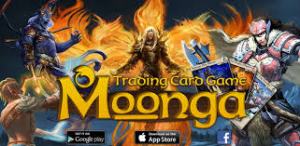We enjoyed discussion at “Moshi moshi, Japan?” (held in Geneva on Friday, 17 April) on “How does a Swiss innovative start-up fight to enter the Japanese market?”
Mr. Shaban Shaame, CEO & Founder, EverdreamSoft, an innovative vendor of Moonga, a game soft run over the mobile device, such as smartphones and tablets.
Highlights of discussion
i
- I found that a large download volume of Moonga, our game soft, from Japan. I thought “Why?”, as I knew that people don’t speak English as default in Japan. This made me to think that there must be a big Moonga market there.
- I went to Japan (in 2009) to find a business partner who could translate the game into Japanese and who’d provide graphics for the games. Communication with the Japanese was difficult. I din’t know Japanese and they din’t know English. We managed to negotiate a contract using Google translator, though sometimes English translated by Google function didn’t make sense.
- Japanese people are hard workers, more than Swiss people are. However, whether their hard work is efficient is questionable. Some (or many?) people work hard where their boss is near by.
- In the Japanese work ethics, a group culture is strong. All the people in the same office stay working till midnight. Some cohesion power must be working.
- Consensus is extremely important in the Japanese decision-making at any level.
- Is change possible? — Yes but only slowly.
- Lay-off is difficult and rare in Japan. Hence employing someone involves a risk to an employer. Mobility is still low in the job market.
- Re. Women at work, maternity leave is guaranteed by law but employers don’t like it. Mobbing to women exists in some offices.
- Then, we discussed bit coin; what it is, how it works, where can we use it, etc.
Forthcoming meetings —
Friday 8 May, Uchi and Soto, the key concepts of the Japanese relationship building


